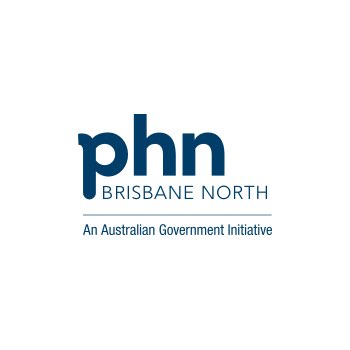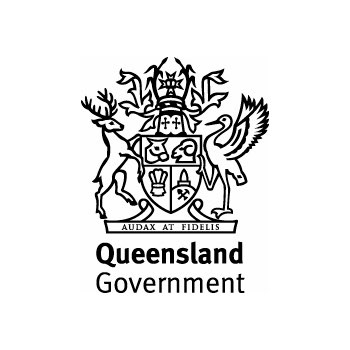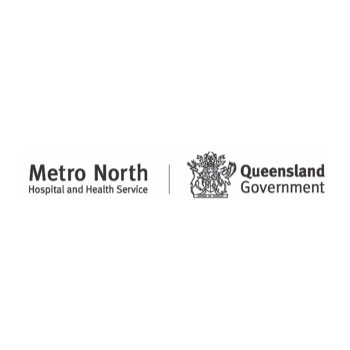

Psychological therapies
Overview
Facts and figures
An estimated 22,000 adults (18 to 65 years of age) in Brisbane North are expected to experience severe mental illness in 2018, all of whom are expected to require treatment
An estimated 93,000 adults in Brisbane North are expected to experience moderate or mild mental illness in 2018, with 25,000 adults expected to require treatment for moderate illness and 31,000 for mild mental illness.
15,600 adults over 65 years of age in Brisbane North are expected to experience moderate or mild mental illness in 2018, with 4,500 expected to require treatment for moderate mental illness and 5,000 for mild mental illness.
In 2011, an estimated 19% of adults over 65 years of age in Brisbane North accessed PBS subsidised antidepressants, with 2.6% of the same group accessing MBS subsided GP mental health services.
Objectives and actions
Action
Planned completion
Status
10.1.1
Research Consumer preferences and needs and promote findings of this research
Planned completion
Ongoing
Status
On track
10.1.2
Align existing and newly-commissioned services with: 1. Consumer preferences and needs on modality of delivery, access hours and type of practitioner; and 2. the needs of specific population groups that cannot access appropriate options
Planned completion
Ongoing
Status
10.1.3
Develop, trial and evaluate an incentivised community-based service delivery model for specific population groups in Moreton Bay North.
Planned completion
2020/21
Status
notstarted
10.1.4
Support a flexible approach to service delivery that emphasises client choice (i.e. combination of face-to-face and online options regardless of client’s geographical locations with equal access to rebates)
Planned completion
Ongoing
Status
On track
10.1.5
Better understand the impact of mental health care plans on people’s willingness to access psychological therapies
Planned completion
2021/2022
Status
On hold
Updated
10.1.6
Improve client levels of technological literacy to maximise effective telehealth delivery
Planned completion
2021/2022
Status
notstarted
10.1.7
Develop and promote Lived/Living Experience narratives that include how professional support can meet individual needs
Planned completion
2021/2022
Status
On track
Action
Planned completion
Status
10.2.1
Develop an education strategy for GPs, other healthcare practitioners and NGOs on psychological therapies, including low intensity psychological therapies.
Planned completion
2018/2019
Status
Completed
10.2.2
Build GP and public understanding about which style of therapist best meets different needs (i.e. difference between counsellors, psychologists, social workers, mental health nurses, brief therapy providers, etc.)
Planned completion
2021/2022
Status
On track
10.2.3
Identify options for improving integration between community services and psychological services
Planned completion
Ongoing
Status
10.2.4
Promote examples enhancing integration between community services and psychological services
Planned completion
2022/2023
Status
notstarted
10.2.5
Commission outcomes-focused practice models that achieve greater integration between psychological and community support services
Planned completion
Ongoing
Status
notstarted
10.2.6
Explore if a multidisciplinary network of Psychological Therapy Providers exists (and/or could be created) and how it can be used to share and promote connections, case studies, professional development etc
Planned completion
Status
notstarted
Updated
Action
Planned completion
Status
10.3.1
Expand access to psychological therapies, including brief therapies, via phone, e-mental health, telehealth, face-to-face and groups, ensuring reach to high need communities.
Planned completion
Ongoing
Status
On hold
Updated
10.3.2
Increase delivery of psychological therapies in high need geographic areas by improving workforce distribution
Planned completion
Ongoing
Status
On track
10.3.3
Improve use of e- and tele-mental health services in high need areas.
Planned completion
ongoing
Status
On hold
Updated
10.3.4
Increase the number of skilled peers and students delivering low intensity psychological services for hard to reach population groups
Planned completion
Ongoing
Status
10.3.5
Develop evidence informed Telehealth Practice Guidelines (i.e. guidance and advice for providers on secure IT service delivery platforms, appropriate insurance, how to deliver services well online)
Planned completion
2020/21
Status
On hold
Updated
10.3.6
Provide professional development opportunities for telehealth service delivery
Planned completion
2021/2022
Status
On hold
Updated
Action
Planned completion
Status
10.4.1
Analyse service uptake and outcomes data to better understand the effectiveness of different service delivery options as a response for different population groups (e.g. for people experiencing mild, moderate and severe mental illness)
Planned completion
Ongoing
Status
On hold
Updated
10.4.2
Publish and share findings about effective use of psychological therapies as part of the stepped care framework
Planned completion
2020/2021
Status
On hold
Updated
Action
Planned completion
Status
10.5.1
Identify low cost methods of effectively promoting evidence-informed approaches to reducing stigma across the community, including to different population groups.
Planned completion
2022/2023
Status
notstarted
10.5.2
Develop an approach to destigmatise and normalise the need to access psychological therapies (i.e. promote help seeking behaviours and Lived/ Living Experience narratives)
Planned completion
2022/2023
Status
notstarted
Action
Planned completion
Status
10.6.1
MBS/NDIS access for counsellors
Planned completion
2020/21
Status
On track
10.6.2
Single tier rebate for non-clinical psychologists
Planned completion
2022/2023
Status
notstarted
10.6.3
Ongoing funding for telehealth service delivery
Planned completion
2021/2022
Status
On hold
Updated
10.6.4
Increased number of sessions available
Planned completion
2020/21
Status
On track
10.6.5
Improve technological infrastructure and financial support to better enable telehealth delivery for both providers and users
Planned completion
Status
On hold
Governance
The Psychological Therapies Partnership drives the development, implementation and monitoring of Planning for Wellbeing Chapter 10. The group consists of local, state-level and national representatives involved in providing psychological therapies including psychology, social work, occupational therapy, counselling, general practice, people with a lived experience and more.
In 2021, the Partnership Group co-created and endorsed the following statement of intent.
The Brisbane North Psychological Therapies Partnership Group is a collaborative, influential partnership group that works together to solve complex issues, identify outcome-focused opportunities and build innovative multidisciplinary evidence based strategies that improve and sustain people’s positive mental health outcomes. We are solution focused and coordinate regional resources, skills and lived experience to address service gaps for people and maximise access to the right services in a timely manner. We challenge the traditional way things have been done so we continually improve services and people’s lives. We are recognised as a respectful voice that can advocate beyond barriers and influence real and long-lasting change for the betterment of people’s mental health and well-being.



Membership
The group consists of local, state-level and national representatives involved in providing psychological therapies including psychology, social work, occupational therapy, counselling, general practice, people with a lived experience and more. There are a number of current vacancies, which we are recruiting for in the coming weeks.
Amanda Curran
Cheif Services Officer
Australian Association of Psychologists Inc (AAPI)
Anthony Bligh
QLD Government - Department of Health
Brooke Carter
Queensland Divisional Manager
Occupational Therapy Australia
Danielle Williams-Brennan
Project Officer
Brisbane North PHN
Emilia Janca
Program Development Officer
Brisbane North PHN
Gaynor Gray
Occupational Therapy Australia
Joseph McCartney
Lived Experience Representative
Kylie Henderson
Australian Psychology Society (Brisbane Branch)
Naomi Laauli
Manager, Mental Health Reform
Brisbane North PHN
Nico Salomo
Program Support Officer
Brisbane North PHN
Philip Armstrong
Chief Executive Officer
Australian Counselling Association
Sara Burton
Senior Staff Specialist - Psychiatrist
Metro North Mental Health Service
Achievements
Planning for Wellbeing recognises the breadth of providers of psychological therapies across the region, including the huge numbers of allied health professionals delivering Better Access services through Medicare, but acknowledges that little is known about genuine consumer preference for what, how and who delivers these services. Importantly, research to inform Planning for Wellbeing also highlighted the lack of empirical evidence on the performance of these services – noting that routinely collected data tracks activities rather than outcomes. The shared objectives within the Psychological Therapies chapter seeks to address these concerns.
A summary of key achievements against the five shared objectives is included below.
Summary of Achievements
Work to achieve this objective is progressing well – with the PHN undertaking a review of consumer needs and preferences in late 2018, and using this information to inform a revised service model for the Brisbane MIND Program. The new service model was launched in July 2019.
The actions to achieve this objective include a range of strategies to promote and advocate for service delivery to occur in the context of the PHN’s approach to stepped care. Work progressed to date includes a suite of educational materials to inform referrers of the range of referral options that exist within the stepped care framework – including the:
As well as other resources which support connection between services as needed – including the My Mental Health Service Navigators, and rediCASE – the online assessment, triage and referral tool available to referrers and service providers, which supports stepping up/down as required
[1] http://www.brisbanenorthphn.org.au/ – Stepped care fact sheet
[2] https://www.youtube.com/ – Our approach to stepped care
[3] http://www.brisbanenorthphn.org.au – Services Map
Work to achieve this objective has been assisted by two region-wide e-based services delivering psychological therapies – namely the phone-based New Access Program [1] delivered by Richmond Fellowship Queensland, and the app-based Daybreak Program [2] delivered by Hello Sunday Morning. Both programs have attracted high numbers, operating at capacity for much of the year.
Further work to diversify the workforce is also progressing, including a number of programs purposely engaging and upskilling peers to provide services, including the Sunshine Parenting Program[3] delivered by Peach Tree Perinatal Wellness, and the Problem Management Plus[4]Program delivered by Culture in Mind.
[1] https://www.rfq.com.au/newaccess/
[2] https://www.hellosundaymorning.org/daybreak/
[3] https://peachtree.org.au/what-we-do/the-sunshine-parenting-program-spp/
[4] https://worldwellnessgroup.org.au/culture-in-mind/our-services/problem-management-plus-pm/
Work in this area will follow the implementation of the revised Brisbane MIND service model – analysing uptake of services and monitoring wellbeing outcomes to better understand the effectiveness of different psychological therapies.
To achieve this objective, the PHN has purposely engaged a range of service modalities for psychological therapies available in the region. For those who do not wish to access services face-to-face, phone and app-based services are available. In addition to locally delivered services, a broader suite of e-based services listed on the national Head to Health [1] website are routinely promoted.
Table 10 presents an overview of the 13 actions that were considered necessary to achieve the five shared objectives in this chapter, noting their expected year of completion, and progress to date.
Success stories
Changed service models to enhance integration
Objective 10.2: Align with our stepped care framework through improved integration between psychological therapies and community services Action…
Growing the use of peers in low intensity services
Objective 10.3: Develop, diversify and geographically redistribute the workforce delivering psychological therapies Action 10.3.3 Increase the…
Designing services based on identified consumer needs
Objective 10.1: Better align psychological therapies with consumer preferences and needs, including for specific population groups that cannot access appropriate…

